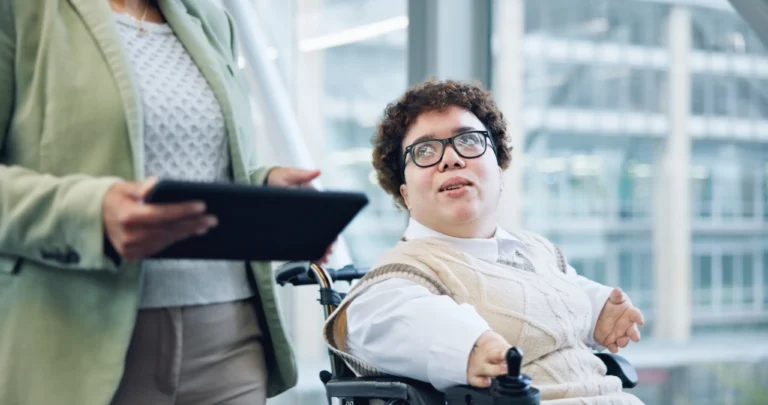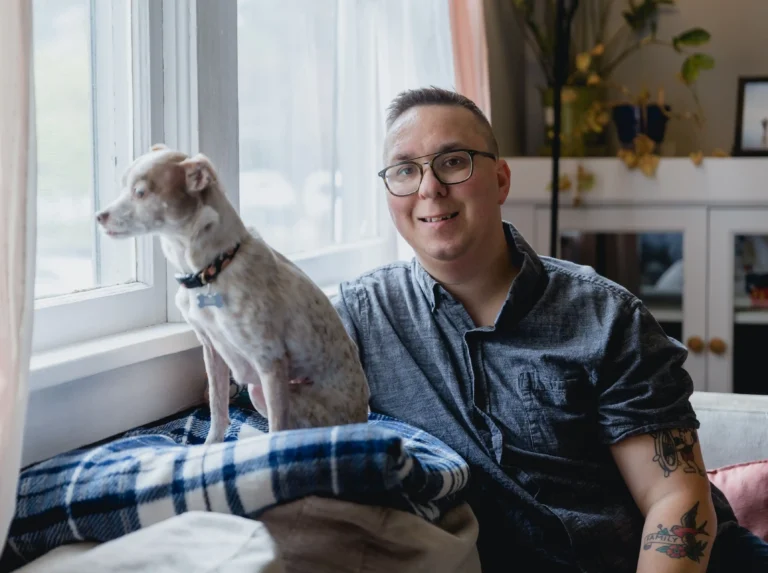Therapeutic supports covers a wide range of help delivered by qualified professionals like occupational therapists, speech pathologists, nurses, physiotherapists and dietitians.
These supports assist with everyday activities like personal care, mobility, communication, building good relationships and participating in the community.
Evidence-based supports for functional improvement.
The NDIS funds therapeutic supports when they are:
- Evidence-based
- Delivered by a qualified allied health professional
- Aimed at improving or maintaining your functional capacity.
Supports may help with:
- Language and communication
- Movement and mobility
- Daily living and personal care
- Interpersonal interactions
- Psychosocial functioning
- Community engagement.
The NDIS may also fund assessments by health professionals for planning and review purposes.
Therapeutic supports in your NDIS Plan.
Most therapeutic supports are funded under the Capacity Building budget. They may fall into one or more of the following categories, depending on your goals and needs.
Improved Daily Living
The most common category for therapeutic supports. It covers therapies that help build independence, daily living skills and confidence.
Improved Health and Wellbeing
Funds supports like exercise physiology or dietitian advice to help manage health needs related to your disability. Note: personal trainers are not considered therapy providers.
Improved Relationships
Supports for behaviour support, social skill development and building strong connections. This is particularly relevant for children with developmental delay or people with psychosocial disability.
Types of therapeutic supports funded by the NDIS.
Therapeutic supports may be delivered:
- One-on-one or in a group
- At home, online, in a clinic or in the community.
Common examples of therapeutic supports under the Improved Daily Living budget:
- Support from a registered nurse: Training you or your support worker to manage health needs, like wound care or continence (when not the responsibility of the health system)
- Counselling: Tools and support to build self-understanding, emotional wellbeing and confidence
- Community engagement: Help connecting with others or joining group activities
- Therapy assistants: Allied health assistants supervised by a qualified therapist
- Therapy assessment or training: Delivered by professionals such as speech pathologists, physiotherapists, occupational therapists or psychologists
- Dietitian advice: Nutrition planning and dietary management
Exercise physiology: Personalised, disability-related exercise programs.
Group and centre-based programs.
You can use your NDIS funds for group and centre-based programs if:
- The provider charges an hourly rate in line with the NDIS Pricing Arrangements
- That rate includes both the support you need and the activity.
If the activity itself isn’t included (for example, an entry fee or ticket) you’ll need to pay for that yourself.
Example: If your group program goes bowling and the provider’s hourly rate doesn’t include the bowling fee, you must pay for it yourself.
Are art and music therapy covered by the NDIS?
Yes. Art and music therapy are recognised NDIS supports. The NDIA is reviewing pricing for these therapies, with findings expected in late 2025. Until then, current pricing and eligibility remain unchanged.
Who provides therapeutic supports?
Therapeutic supports must be delivered by qualified professionals such as:
- Occupational therapists
- Physiotherapists
- Dietitians
- Speech pathologists
- Psychologists
- Registered nurses
- Accredited exercise physiologists
- Allied health assistants (under supervision).
Check that your provider is qualified and NDIS-registered if required.
How do therapeutic supports work?
It usually starts with an initial consultation where your therapist will:
- Talk to you about your needs and goals
- Assess your strengths and challenges (possibly ask you to try some activities)
- Recommend suitable supports.
You’ll then work together to create a personalised plan. This might include:
- Regular therapy sessions
- Home-based activities or exercises to build your skills
- Practical strategies for everyday life.
How Leap in! can help.
If you’re not sure what therapeutic supports you can access or how they fit into your plan, we can help.
- Call the Leap in! Crew on 1300 05 78 78
- Email us at crew@leapin.com.au
- Or chat with us online at leapin.com.au (Monday to Friday, 9am to 5pm).
Further reading.
Originally published Dec 18, 2020 and updated 8 May 2025


